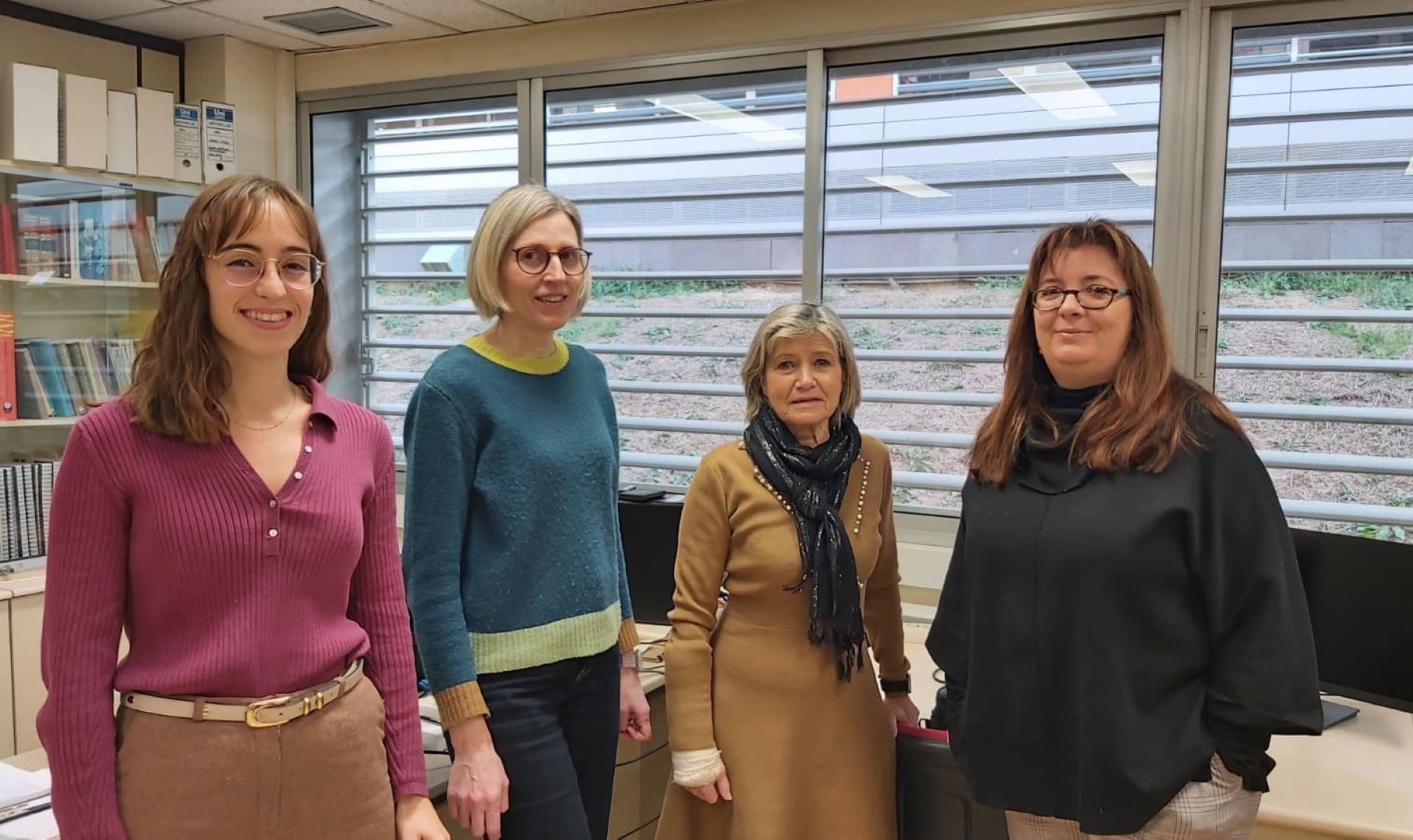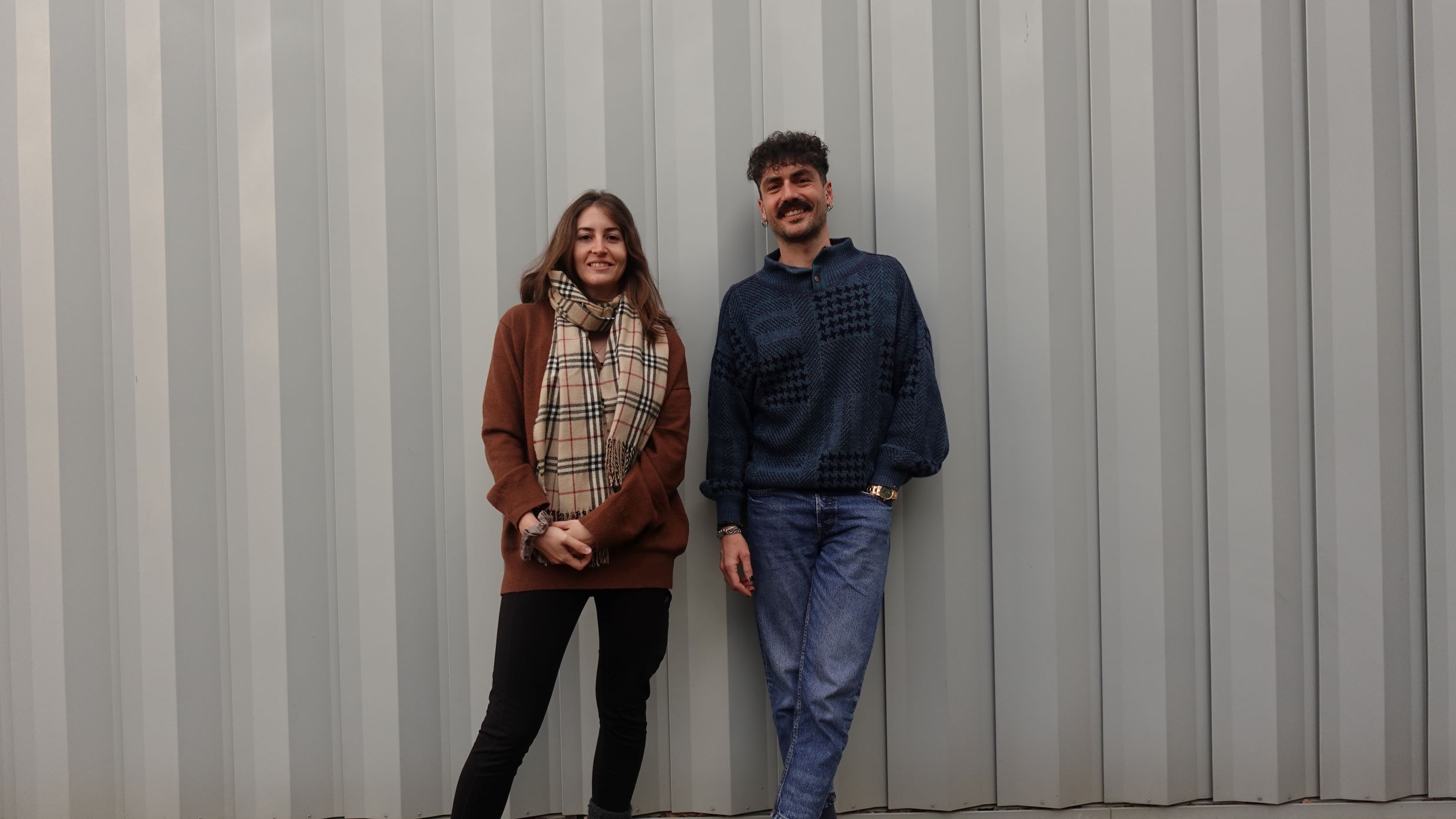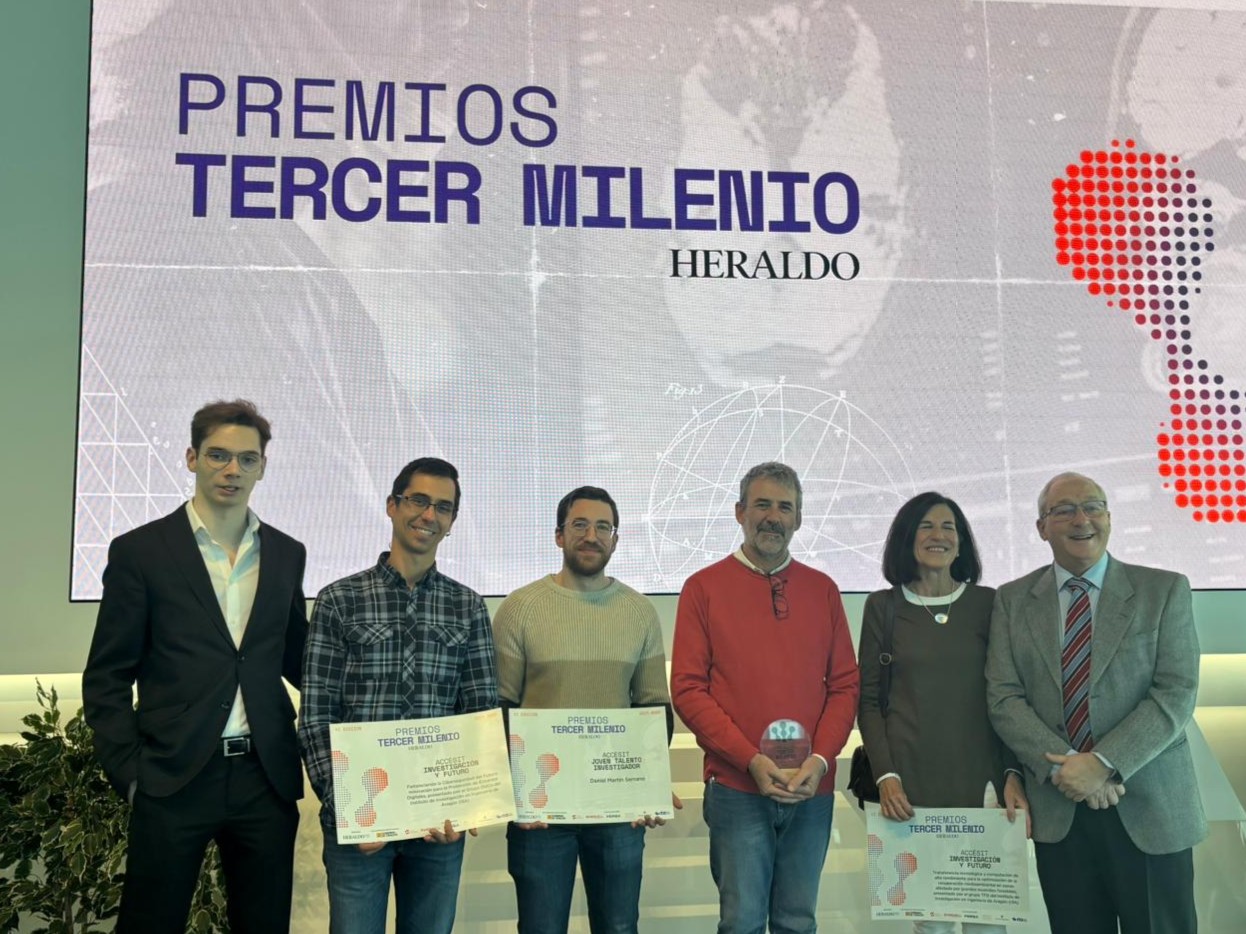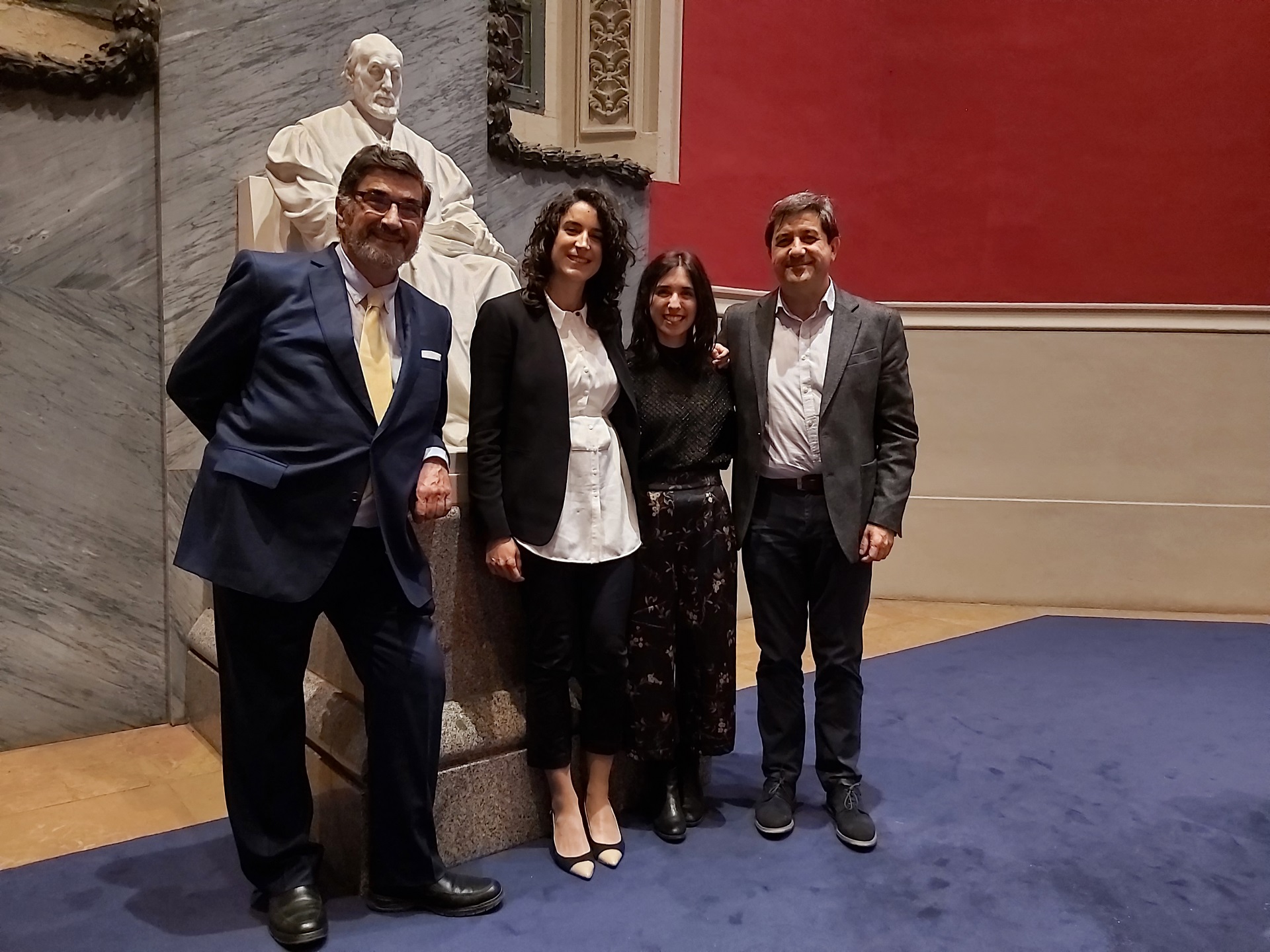
The research carried out at the I3A was recognised last night at the celebration of the Third Millennium Awards, which Heraldo has been promoting for the last eight years among the Aragonese research community, from the youngest to the most consolidated trajectories, with knowledge transfer, innovation and scientific dissemination.
The Paraninfo of the University of Zaragoza hosted this event in which the researcher Julia Ramírez García, from the BSiCoS group of the I3A received the "Young Talented Researcher" award for her work in biomedical signal processing.
During his PhD at Unizar (2017), he developed a methodology to quantify morphological variations in the electrocardiogram (ECG). This quantification led to the T-wave morphology restitution (TMR) index, which proved to be a stronger predictor of sudden cardiac death than standard clinical indices.
After his PhD, he moved to work at Queen Mary University of London (QMUL) in London. This was a key point in his research career because it broadened his engineering knowledge, gaining expertise in genetics and bioinformatics. During these years, she was awarded two highly competitive European postdoctoral fellowships: a WHRI-Academy Cofund (2017) and a Marie Skłodowska-Curie Fellowship (2018). In recognition of her work, in April 2020, QMUL promoted her to lecturer in Genetics and Cardiovascular Data Science.
Since January this year, Julia Ramírez has been back in Zaragoza thanks to a María Zambrano International Talent Attraction Grant, renouncing the highly competitive Talent Attraction Modality 2 grant from the Community of Madrid, which she had also been awarded. In total, the Zaragoza researcher has contributed to her field of research with 32 peer-reviewed publications in different disciplines, including bioengineering, cardiology and genetics (13 as first author).
In her speech yesterday she was emotional and acknowledged "being at a happy moment", for being back in Zaragoza, "being away is not always easy" and also for receiving an award for her work that always motivates her to move forward in a career as a researcher, which is long and complicated.
Also in the "Young Talented Researcher" category, the Third Millennium Awards recognised Beatriz Moya García with a runner-up prize for her multidisciplinary work and international collaboration in the development of technologies that combine mechanical engineering with artificial intelligence and cognitive sciences for the design of scientific artificial intelligence systems.
Beatriz Moya holds a PhD in Mechanical Engineering and is currently doing research with a postdoctoral contract in the AMB group at the Aragon Institute for Engineering Research (I3A). In June next year, she will stay at the Singapore NRF Centre for Research Excellence and Technological Enterpise (CREATE), a joint centre of the French CNRS and the National University of Singapore, to research on the creation of digital twins of smart cities.
In the "Transfer" section, the Catalysis, Molecular Separations and Reactor Engineering (CREG) group received the runner-up prize for "Sustainable Products and Processes", which was collected by the group's coordinator, Miguel Menéndez Sastre. The research activity of this I3A research group has a long history in the transfer to companies, including two with which it has maintained an intense and continuous collaboration for more than 15 years: Industrias Químicas del Ebro (IQE group) - for example in the development of a material (high dispersion precipitated silica) that can be applied to obtain low consumption tyres (the so-called 'green tyres') - and Nurel (Samca group) - which has allowed the company to put textile materials with advanced properties on the market.
It has also collaborated with other national companies (Cepsa, Petresa and Ercross) and international companies, the latter within the framework of different European projects.
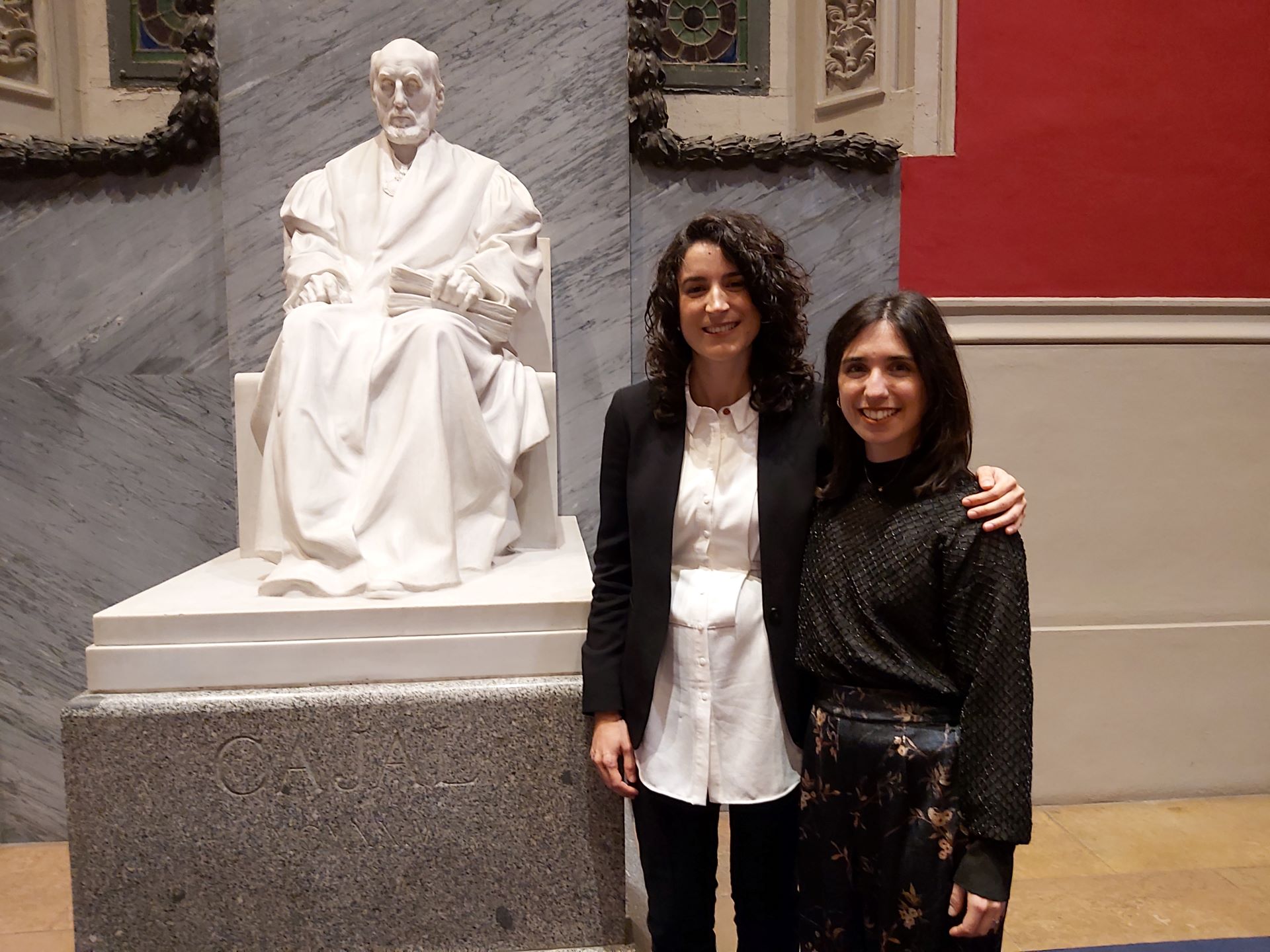
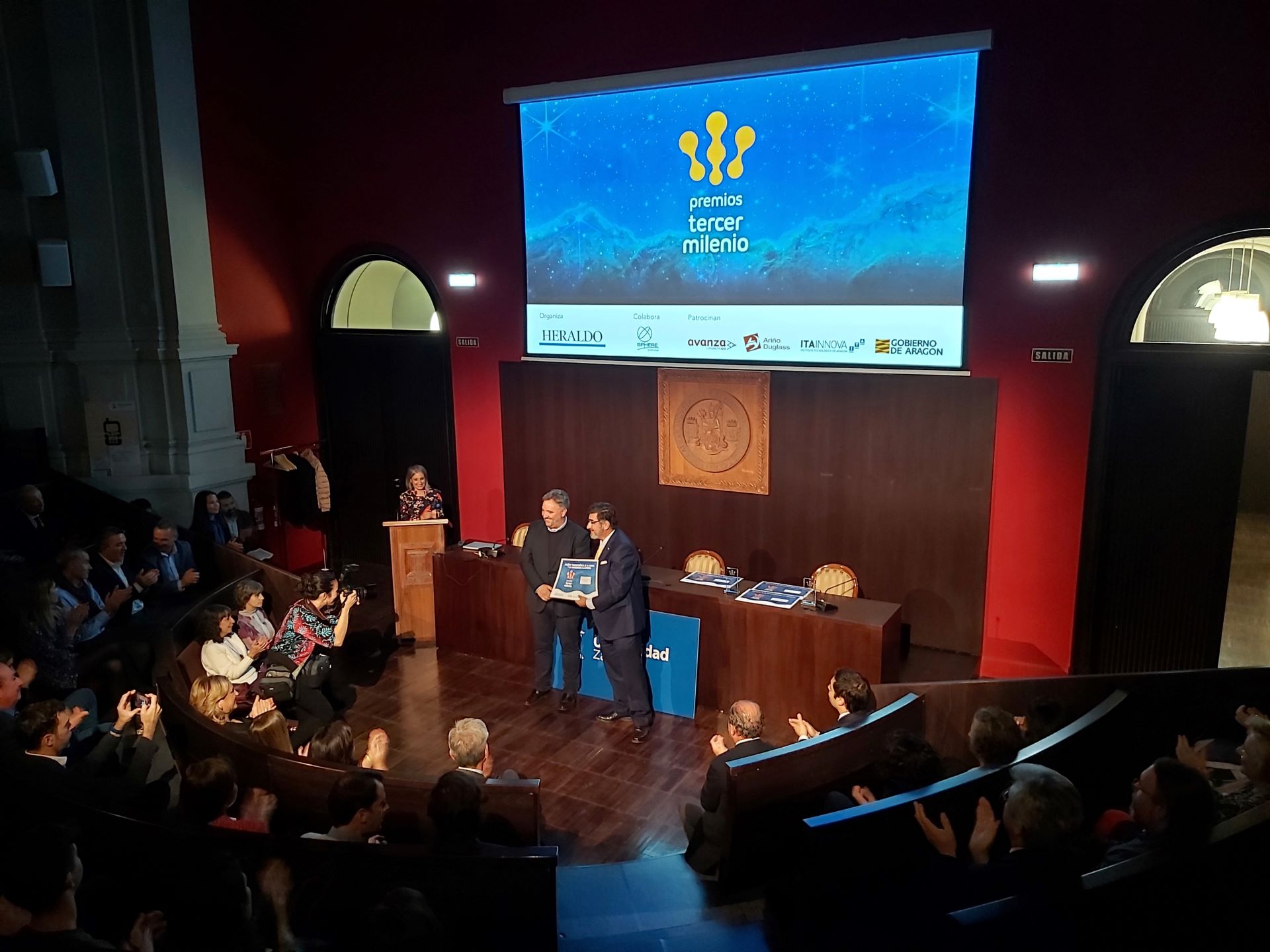
More information on the Third Millennium Awards.
